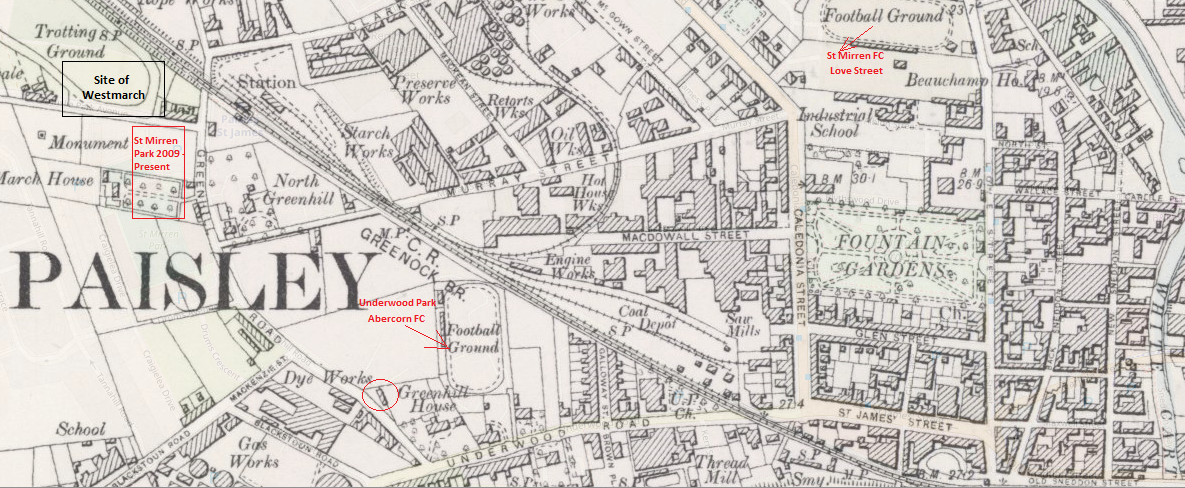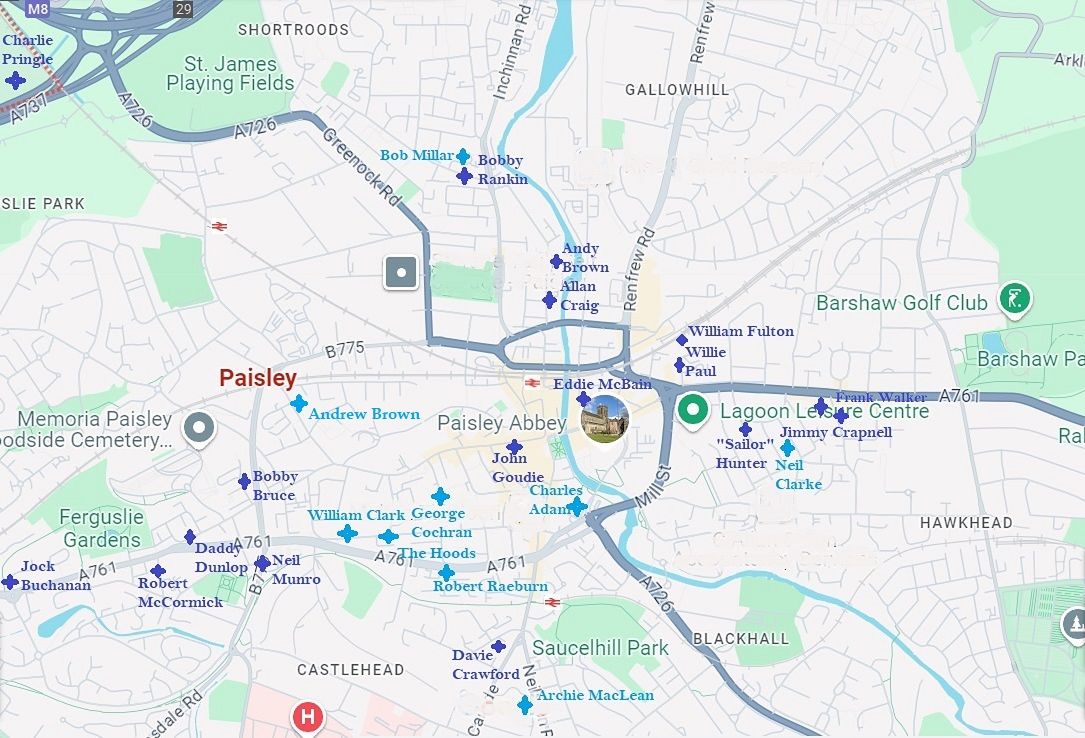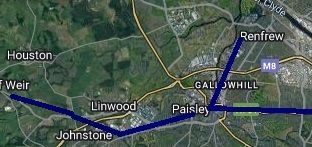The Cart Trails
(Trail 4: Johnstone and Paisley)
In fact this trail starts in neither Johnstone or Paisley but in Bridge of Weir and Kilbarchan and it ends in Renfrew. But it is the two larger towns that will take you round the World. In fact there is a good argument for Paisley through its five decades from about 1880 of supremacy in the production of cotton-thread to be designated the main launch-pad of global football. Mills would be built or bought and re-engineered in Europe, North and South America that would lead as night follows day to folk, Renfrewshire towns-folk with a passion for the game planting the seed almost everywhere that work took them.
And back home its clubs, initially Abercorn, then St. Mirren, both founded in 1877 and later Dykebar, with grounds around half a mile apart, would produce players, who even at first asking would continue the process literally to the pinnacle of the game, the World Cup.

With thanks to Cairters Corner
Indeed, such has been the influence that Paisley's Woodside Cemetery contains the graves of more of Scotland's early internationals than any other in the country, including even Glasgow's individually.
Woodside Cemetery, Paisley
Moreover almost fifty of those same internationals would emerge from the five towns and villages that lie on or overlook the Black Cart and Lower White Cart rivers as they combine and together spill into the Clyde.
Other Paisley and Area Players - Internationals
Furthermore not far off one hundred further players without Scottish honours would be instrumental in taking the region's, indeed the Scottish game, to other parts of the country, into England and once more well beyond.
Other Paisley and Area Players in Scotland and to England
Alex Leslie
James Lindsay
Matty Lochhead
Billy McAllister
James McCloy
Bill McPherson
Archibald McLardie
Bobby Moffat
Matthew Mullen
Geordie Reid
Robert Robertson
James Thomson
Duncan Walker
James Wilson
Alex Wylie
Bobby Walker
Wattie Allan
Robert Dalrymple
William McGinnigle
Jim Walker
Willie, Frank & James Walker
Alex Hunter
And that "beyond" includes Europe, Ireland by birth, Spain by choice, North and South America again by choice but one which in the case of the United States includes a major contribution to its early soccer, at both club and international level.
However, the truth is that in Paisley certainly a surprising proportion of those to take the field for both its two main teams, both staying long-term and also before moving on, and would win international honours had been imported, largely from Glasgow and Ayrshire. Moreover, there is in Paisley itself, unlike Dumbarton or even Kilmarnock, no identifiably concentrated part or parts of it that produced top-flight players in numbers. There is thus no equivalent of the Renton Rambles or the Galston, Newmilns and Darvel Drive-Through.

Yet that does not mean that Paisley's impact is diminished but its legacy lies in the thread mills it opened round the World, in the weavers and spinners who took their skills globally, implanting the game they knew wherever they went and playing it semi-professionally or as amateurs. Brazilian football would not be what it has become without Archie McLean, equally Spanish football without George Cochran. In American the game might not have been implanted and survived without the efforts, notably in Kearny and Pawtucket, of many, including the two Paisley/Johnstone-born US Soccer Hall of Famers, Andrew Brown and Peter Wilson, who literally played, coached and administered their parts. And when between arrival and survival the US game boomed Paisley players were there once more. Indeed, who knows if there would be any US involvement at all in the World Cup today, indeed the winning of the Women's version of it, without, in its first staging in 1930, that country's remembered success under the tempestuous Buddy, Bob Millar.
Back to SFHGHome page
